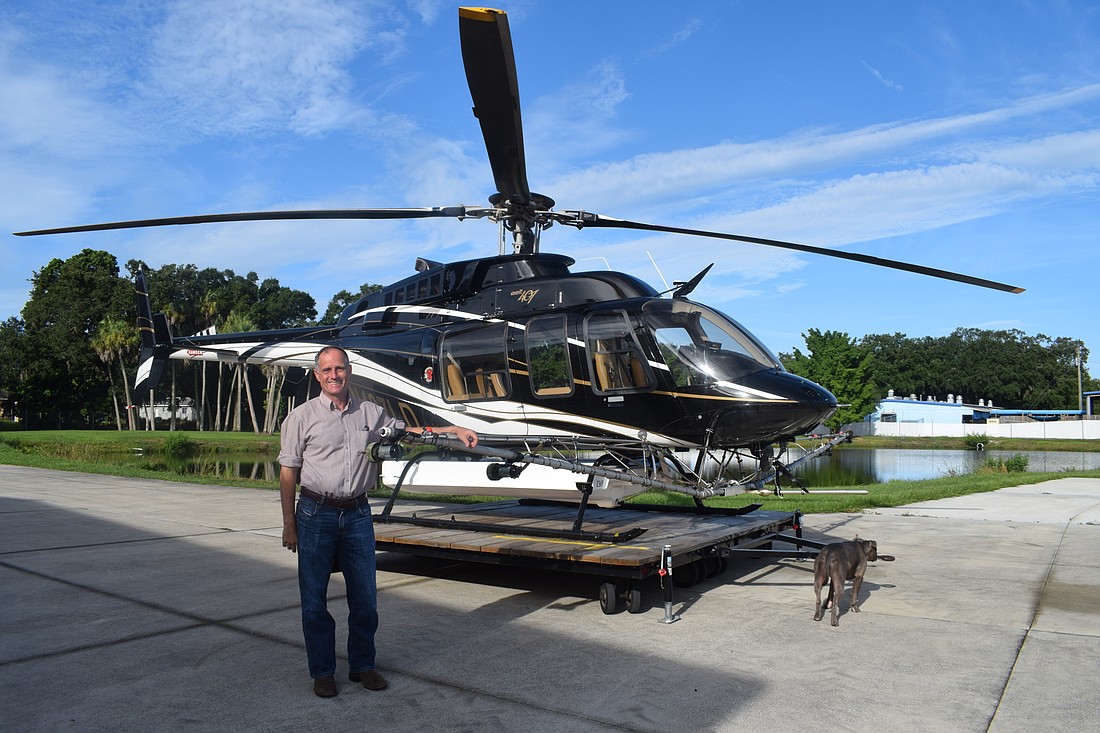- April 25, 2024
-
-
Loading

Loading

By the time the Manatee County Mosquito Control District finished spraying for mosquitoes July 16, the control district had covered 100,000 acres in East County in a span of three nights.
The need for nightly spraying was due to the increase of mosquitoes throughout East County as a result of Tropical Storm Elsa and the heavy rains that hit the area the weeks prior.
As the rainy season and hurricane season continues, people most likely will hear more helicopters flying above their homes or trucks driving down their streets at night to spray for mosquitoes.
Chris Lesser, the director of the Manatee County Mosquito Control District, said the summer months are the worst for mosquitoes.
“We’re right in the middle of the worst part,” Lesser said.
Lesser said the eastern part of Manatee County has seen between 5 inches and 12 inches of rain in the past month, leaving pastures, ditches and other areas flooded — a perfect breeding ground for mosquitoes.
Mosquitoes that are a result of Tropical Storm Elsa emerged last week.
Over the night of July 13, a Manatee County Mosquito Control District trap at Lake Manatee collected about 1,100 mosquitoes.
Lesser said that was double the average the control district typically sees in that trap.
In East County, Lesser said Myakka City and Panther Ridge tend to be areas with more mosquitoes because of the standing water on pastures, wetlands and ditches.
The Manatee County Mosquito Control District has a few ways of keeping track of mosquito counts each day.
One way is having employees go out to certain areas across the county, standing there for one minute and counting how many mosquitoes land on the front of them. If the number of mosquitoes landing is higher than the average for the area, it means spraying might need to occur.
Another way is through the 58 traps placed throughout the county. In East County, there are about 15 traps.
Max Dersch, the entomology manager at Manatee County Mosquito Control District, said the traps are collected each day. The number of mosquitoes in the trip could range from hundreds to thousands, so Dersch takes a tenth of the weight of the collected trap as a sample to analyze.
“We’ve had some traps that came in already this season at 30,000 mosquitoes in one night in one trap,” Dersch said.
Dersch uses a microscope to separate the mosquitoes by species. If a species' total in the trap for a day is higher than the 10-year average for the species, the control district knows there’s a problem in the area in which the trap is located.
The control district also depends on customer complaints to determine areas that might need to be sprayed, but Lesser said a high number of customer complaints doesn’t always warrant a need to spray.
“Everything’s science based, everything we do is based on numbers, based on data that we collect,” Lesser said. “The traps dictate where we spray and how frequently we spray. If the traps show we were not getting that many mosquitoes, then even if we get 100 people calling from Panther Ridge, legally we can’t spray.”
Depending on the science to show when areas of the county need to be sprayed means the control district doesn’t follow a schedule.